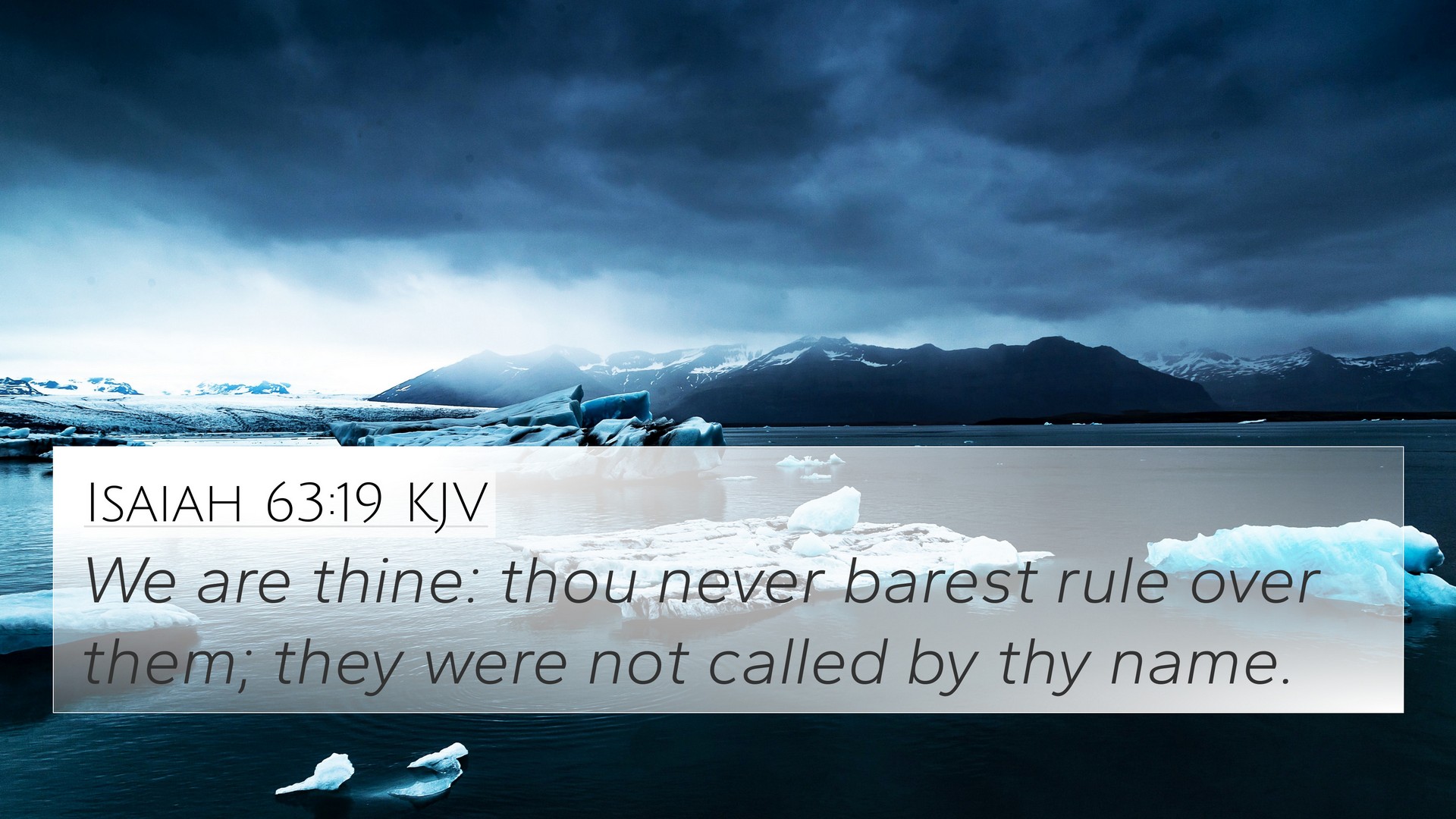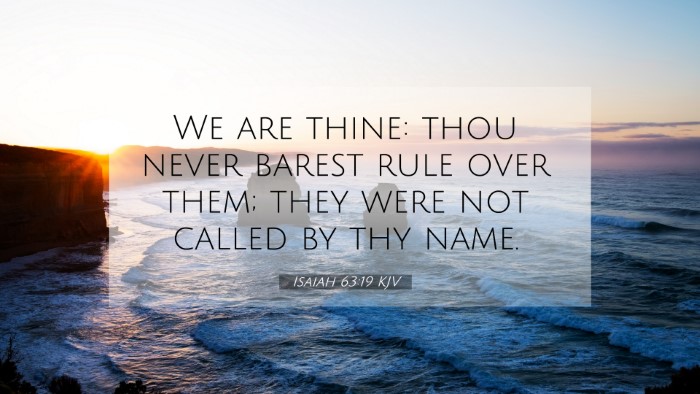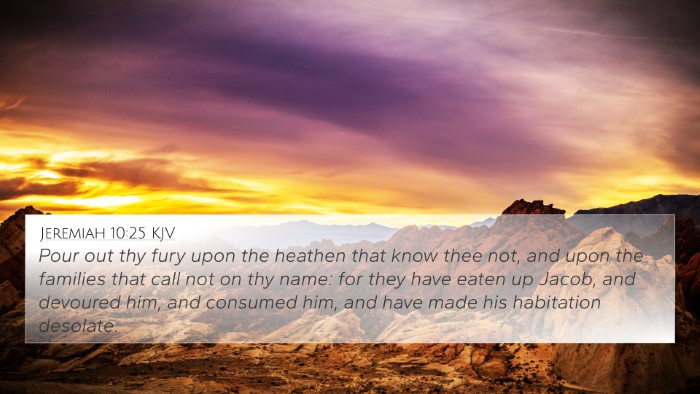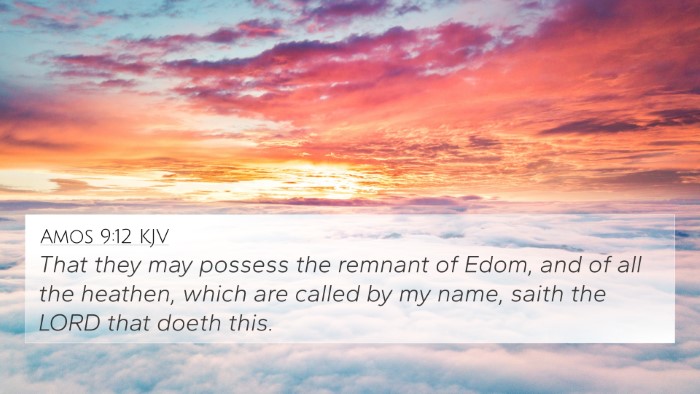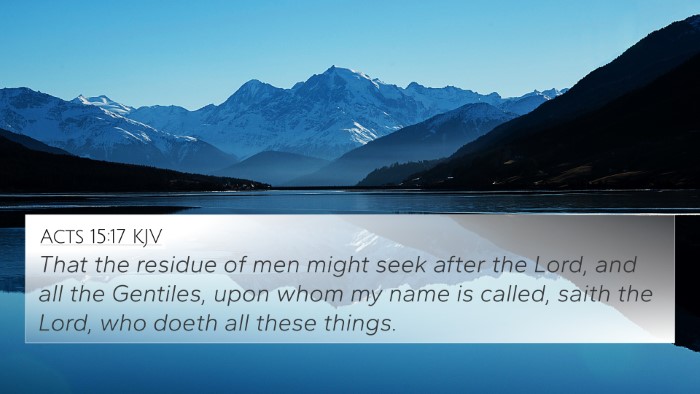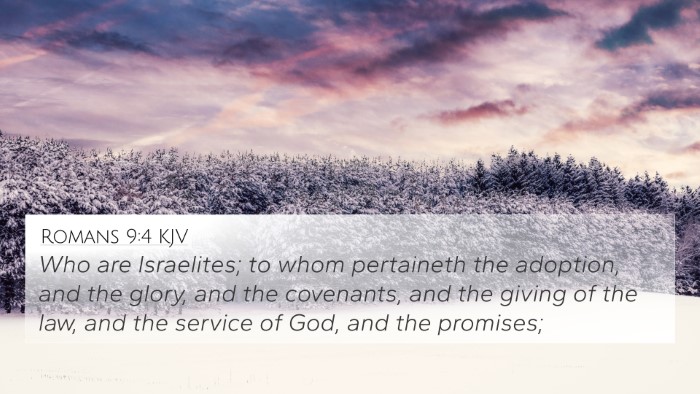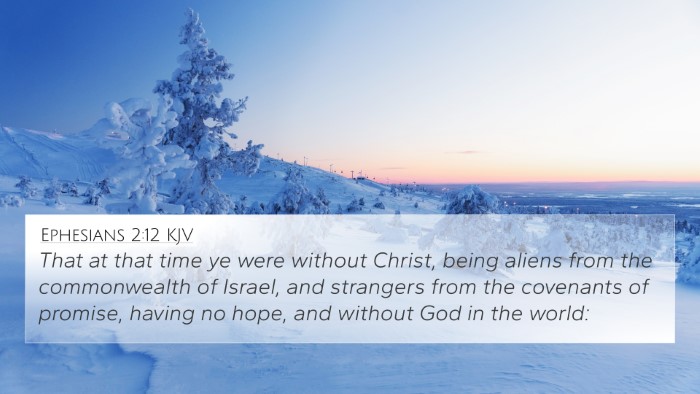Understanding Isaiah 63:19
Isaiah 63:19 reads, “We have become like those over whom You have never ruled, like those who are not called by Your name.” This verse expresses a profound sense of loss and separation from the Divine, reflecting the people's lament regarding their relationship with God.
Meaning of Isaiah 63:19
The verse captures a moment of despair among the Israelites. It serves as a powerful reminder of the consequences of sin and disobedience, illustrating how the people felt abandoned by God due to their transgressions.
Commentary Insights
- Matthew Henry: Henry reflects on the bleakness expressed by the Israelites in this verse, emphasizing their feeling of being estranged from God. He points out that their lament arises from recognizing that they have become like those who do not know God, indicating their deep yearning for divine inclusion and favor.
- Albert Barnes: Barnes notes that Isaiah uses this imagery to highlight the plight of the people who once experienced the governance and protection of God. He emphasizes the need for repentance and a return to the Divine, suggesting that recognition of their condition can lead to healing.
- Adam Clarke: Clarke expands on the metaphor of ruling and being called by God’s name, suggesting that it symbolizes a significant loss of identity and security for the Israelites. His commentary poses the question of what it means to belong to God and encourages readers to seek restoration of their relationship with the Divine.
Bible Cross-References
This verse connects with several other scriptures, illustrating its themes of separation, repentance, and yearning for God's presence:
- Jeremiah 14:9 - "Why should You be like a man bewildered, like a mighty man who cannot save?" – This verse echoes the sense of abandonment felt by the Israelites.
- Psalm 44:9-26 - This psalm describes a state of defeat and feeling forsaken by God, similar in sentiment to Isaiah 63:19.
- Isaiah 64:7 - "And there is no one who calls on Your name, who stirs himself up to take hold of You" – A direct reflection on the negligence in calling upon God.
- Hosea 1:9 - "You are not My people, and I will not be your God." This verse illustrates the theme of divine estrangement found in Isaiah 63:19.
- Matthew 15:14 - "Let them alone. They are blind leaders of the blind." This implies the dangers of leading a life devoid of divine guidance.
- Romans 10:3 - "Being ignorant of God's righteousness, and seeking to establish their own righteousness." This speaks to the human tendency to stray from divine instruction.
- Revelation 3:20 - "Behold, I stand at the door and knock." A reminder that despite our separation, God desires reconnection.
- Galatians 4:8-9 - "When you did not know God, you served those which by nature are not gods." This echoes the sentiment in Isaiah regarding lost identity in God.
- Isaiah 1:28 - "But rebels and sinners shall be broken together, and those who forsake the Lord shall be consumed." This articulates the consequences of disobedience.
- Isaiah 52:5 - "Now therefore, what have I here, says the Lord, that My people are taken away for nothing?"– This reinforces the message of loss due to disobedience.
Thematic Connections
Isaiah 63:19 resonates with various major themes throughout the Bible:
- Separation from God: The theme of being cut off due to sin recurs, as seen in the verses mentioned above.
- Yearning for Restoration: Across the scriptures, collective lamenting often precedes divine intervention and restoration.
- Identity in God: The struggle of maintaining one's identity as the people of God is a continual theme leading to spiritual consequences.
- God's Faithfulness: Even in separation, the hope for God's continued fidelity and willingness to restore is ultimately present.
Tools for Further Study
For those interested in exploring the connections and themes presented in Isaiah 63:19 and similar verses more deeply, consider the following tools:
- Bible Concordance: Essential for finding other verses that relate to specific words or themes.
- Bible Cross-Reference Guide: A helpful resource for visualizing connections between various scriptures.
- How to Use Bible Cross-References: Understanding the importance of seeing how verses interact can enhance comprehension.
- Cross-Referencing Bible Study Methods: Exploring ways to compile and study themes through connected verses.
- Comprehensive Bible Cross-Reference Materials: Various aids like charts and studies available for deeper research.
Conclusion
The poignant expression of disconnection in Isaiah 63:19 serves as a powerful reflection on the struggles inherent in the human experience of alienation from the Divine. Through the insights from public domain commentaries, we can glean the profound implications of returning to God, recognizing our need to engage with the ongoing dialogue established throughout the scriptures. This verse not only stands alone but also resonates within a broader tapestry of biblical themes, challenging us to reflect on our relationship with God and the transformative power of reconciliation.
